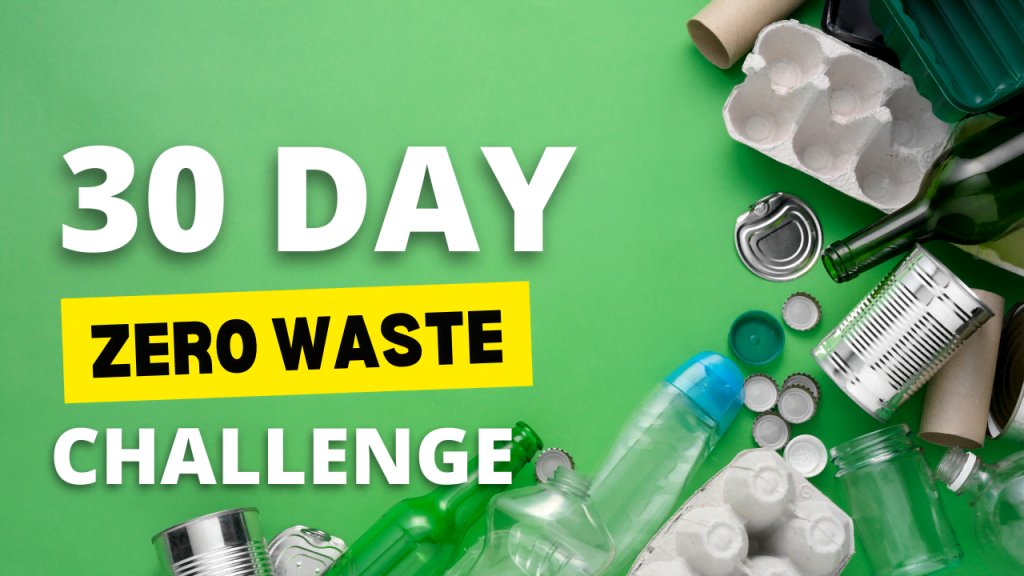As we face environmental challenges, acquiring green skills is crucial. These skills help save our planet and boost careers. In this article, we’ll explore what green skills are and their impact on employees and employers alike.
What Are Green Skills? The Essentials for Us
Green skills or GS, are competencies related to environmental and sustainability issues. They empower us to contribute to eco-friendly practices, innovate solutions, and adapt to the green economy. These skills span areas like renewable energy, waste management, sustainable agriculture, green construction, and eco-friendly transportation. Let’s dive deeper into these key areas.

Renewable Energy: Powering a Sustainable Future
Mastering renewable energy skills is crucial. As we transition from fossil fuels to clean energy, expertise in solar, wind, and hydroelectric power is in demand. We can develop, implement, and maintain sustainable energy systems, reducing our carbon footprint and creating a resilient energy infrastructure.
Waste Management: Reducing, Reusing, and Recycling
Waste management skills are vital. Proper techniques enable us to reduce, reuse, and recycle resources. By learning waste reduction strategies, composting methods, and recycling processes, we can minimise our environmental impact and promote a circular economy.
Sustainable Agriculture: Nurturing Our Planet
Sustainable agriculture skills help ensure food security while protecting the environment. We can learn about organic farming, water conservation, and biodiversity preservation to create resilient and productive agricultural systems that benefit both people and the planet.
Green Construction: Building for a Better World
Green construction skills are essential for creating eco-friendly buildings. By understanding green building materials, energy-efficient designs, and sustainable construction practices, we can reduce the environmental impact of our built environment and improve occupants’ well-being.
Eco-Friendly Transportation: Shifting Gears
Lastly, eco-friendly transportation skills are important. We can learn about electric vehicles, public transportation planning, and bike-friendly infrastructure to reduce emissions, decrease traffic congestion, and create healthier, more sustainable cities.
Why Green Skills Matter: Saving Our Planet
Green skills are essential for multiple reasons. They help us combat climate change, create new job opportunities, and foster a sustainable economy. Let’s explore how GS contribute to saving our planet and improving our lives.
Combating Climate Change: A Global Effort
Climate change is a pressing issue that requires collective action. These skills empower us to implement eco-friendly practices, reduce greenhouse gas emissions, and protect our planet’s ecosystems. By acquiring these skills, we become part of the global effort to mitigate climate change and preserve our environment for future generations.
Creating New Job Opportunities: The Green Economy
As the green economy grows, new job opportunities emerge. Developing green skills prepares us for these new roles, enhancing our employability and career prospects. Companies value employees with GS, as they contribute to their sustainability goals and help them stay competitive in a rapidly changing market. Read more about how to set up your own eco council
Fostering a Sustainable Economy: Long-Term Benefits
Green skills contribute to a sustainable economy, where resources are used efficiently, waste is minimised, and social equity is promoted. By embracing GS, we support businesses in adopting sustainable practices, driving long-term benefits for our planet and economy.
In conclusion, green skills are crucial for saving our planet and boosting our careers. By developing these skills, we can contribute to a cleaner, more sustainable world and secure our future in an ever-evolving job market. So, let’s embrace GS and be part of the change we want to see in the world.
Boosting Careers: Green Skills and Employment Opportunities
Green skills not only benefit the planet but also enhance our career prospects. As businesses increasingly prioritise sustainability, employees with GS are in high demand. Let’s explore how these skills create new opportunities and boost our careers.
Meeting Employer Expectations: Aligning Values
Companies are seeking employees who share their commitment to sustainability. By developing green skills, we align ourselves with their values and goals, making us more attractive candidates. Demonstrating GS on our resumes sets us apart and showcases our adaptability to the evolving job market.
Driving Innovation: Solving Environmental Challenges
These skills fuel innovation and problem-solving. In a world facing numerous environmental challenges, these skills empower us to develop creative, sustainable solutions. Employers value this mindset, as it contributes to their long-term success and resilience in a changing world.
Expanding Job Opportunities: The Green Sector
The green sector is growing rapidly, offering diverse job opportunities. Green skills prepare us for roles in renewable energy, sustainable agriculture, green construction, and more. By honing these skills, we can secure our future in an expanding and dynamic job market.
Advancing in Existing Careers: Sustainability Integration
Green skills are also valuable in traditional industries. By incorporating sustainability into our existing roles, we can drive positive change and enhance our career growth. Integrating GS into our work helps us stay relevant and agile in an increasingly eco-conscious world.
In summary, these practices are becoming increasingly vital for career success in the modern job market. They open doors to new opportunities, align us with employer values, and drive innovation. By embracing these skills, we can future-proof our careers and contribute to a more sustainable world.
Green Skills Development: Success Stories
This type of skills development is making a significant impact across various industries and regions. Let’s take a look at some recent success stories that highlight the power of GS.
Entrepreneurs Drive Green Skills Globally
Entrepreneurs are contributing to the growth of green skills around the world. In Brazil, 20% of startups employ workers with GS, exceeding the global average of 18%. Additionally, in India, two out of every 100 entrepreneurs are highly skilled in green practices. These entrepreneurs are leading the charge in sustainable innovation and job creation.
Green Skills in Construction
The construction industry is an essential area for climate crisis adaptation, and the integration of green skills plays a crucial role. Companies are increasingly adopting sustainable practices in construction, leading to a higher demand for green-skilled workers
Green Skills Award by ETF
The European Training Foundation (ETF) introduced the Green Skills Award to promote GS among new generations. This initiative aligns with ETFs core mission and highlights the importance of sustainable practices in education and the workforce.
Hydrogen Skills Partnership
Several organisations, including universities and energy companies, have come together to form the Hydrogen Skills Partnership. This collaboration aims to bring together experts from industry and academia to ensure the workforce is equipped with the necessary skills to support the growth of the green hydrogen sector.
H2 Green: Green Hydrogen Production and Distribution
H2 Green is focused on developing and operating green hydrogen production, storage, and distribution hubs across the UK. They have entered into strategic agreements with various partners to align their production and distribution strategies, aiming to accelerate the creation of the UK’s first green hydrogen refuelling network.
These success stories demonstrate the growing importance of green skills in various industries and regions. By investing in GS development, we can foster a more sustainable future and create new opportunities for innovation and growth.
Creative Strategies to Bridge the Green Skills Gap
Addressing the green skills gap requires innovative and unique strategies that encourage learning and engagement. We can suggest several approaches that may help bridge the gap…
Gamification of Green Skills Training
Introducing game elements into green skills training can make learning more enjoyable and interactive. By utilising gamification, we can motivate employees to acquire new skills, foster healthy competition, and enhance their understanding of sustainable practices.
Virtual Reality-Based Learning Environments
Virtual reality (VR) technology can create immersive learning experiences for green skills training. VR-based learning environments can simulate real-life scenarios, enabling employees to practise new skills in a safe and controlled setting. This approach can facilitate a better understanding of sustainability concepts and their applications.
Collaborations between Businesses, Educational Institutions, and Governments
Creating targeted training programs requires collaboration among businesses, educational institutions, and governments. These partnerships can help develop industry-specific curricula and resources, ensuring that employees acquire the green skills necessary for their sector. Working together, stakeholders can also identify skill gaps and address them more effectively.
Hackathons and Green Skills Competitions
Organising hackathons and green skills competitions can encourage employees to apply their knowledge, innovate, and showcase their GS. These events can foster a sense of community and teamwork, as well as drive the adoption of sustainable practices across industries.
Mentorship Programs
Establishing mentorship programs can help employees learn from experts in their fields. By connecting with experienced professionals who have already adopted green practices, employees can gain valuable insights and guidance on implementing sustainable solutions in their own roles.
Through these creative strategies, we can work towards bridging the green skills gap and promoting a more sustainable future for all.
Promoting GS and addressing the GS gap is vital for both employees and employers to ensure a sustainable and prosperous future. To help you take action, here are some ideas and action points based on the provided search results:
Be proactive in your approach
Take the initiative to learn about green skills, identify gaps in your knowledge, and actively seek out training opportunities to enhance your skill set.
Develop a Wellness Action Plan
Create a personalised plan that focuses on mental health and overall well-being in the workplace. Incorporate green skills development into this plan as a way to contribute to your personal and professional growth. Get the detailed PDF guide from Mind
Participate in events and programs
Engage in hackathons, green skills competitions, and mentorship programs to learn from experts and showcase your GS.
Collaborate and communicate
Foster open communication with colleagues, supervisors, and stakeholders to address environmental challenges and share knowledge about sustainable practices.
Encourage your workplace to take action
Advocate for the development and implementation of green skills training programs, partnerships with educational institutions and governments, and the integration of sustainable practices in your workplace.
Evaluate and reassess
Continuously evaluate your progress in developing green skills, and adjust your action plan as needed to ensure you’re on track to achieve your goals
By taking these steps and actively participating in the transition towards a more sustainable future, you can help bridge the GS gap and contribute to the global effort to protect our planet.
FAQ / TL;DR
1. What industries are most in need of GS?
Industries such as renewable energy, sustainable agriculture, waste management, green construction, and sustainable transportation are among the most in need of GS. However, GS are increasingly important across all sectors as businesses and governments strive to meet environmental and sustainability goals.
2. How can individuals start developing GS?
Individuals can start developing green skills by participating in relevant educational programs, online courses, workshops, and internships. They can also network with professionals in the green sector, attend industry events, and join online communities to stay informed about the latest trends and opportunities in the field.
3. How can businesses contribute to closing the GS gap?
Businesses can contribute by investing in employee training, supporting green start-ups, and collaborating with educational institutions to integrate green skills into curricula. They can also sign corporate GS pledges to demonstrate their commitment to sustainability and GS development.
4. What role do governments play in addressing the GS gap?
Governments play a crucial role by establishing policies and regulations that encourage GS development. This can include providing funding for green training programs, supporting research and development in sustainable technologies, and creating incentives for businesses to invest in GS and practices.
5. How do green skills benefit the workforce and society as a whole?
GS benefit the workforce by creating new job opportunities, driving economic growth, and fostering innovation in sustainable technologies. They also benefit society by promoting environmental conservation, reducing pollution, and supporting the transition to a low-carbon economy.




